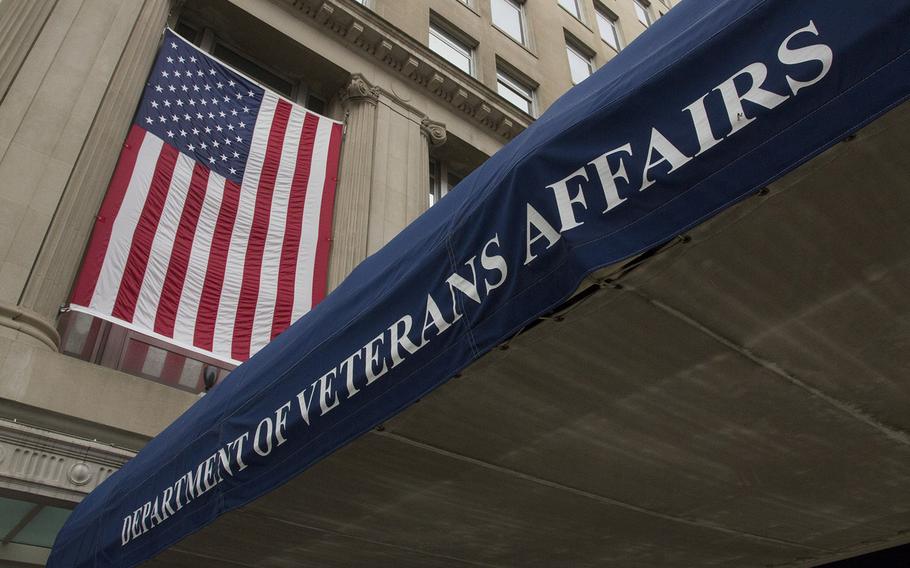
The Department of Veterans Affairs headquarters in Washington, D.C. (Stars and Stripes)
WASHINGTON — The House Committee on Veterans’ Affairs on Thursday initiated what could be a long and politically arduous process to get rid of aging and underused Department of Veterans Affairs facilities nationwide.
Committee Chairman Rep. Phil Roe, R-Tenn., and Rep. Tim Walz, D-Minn., the ranking Democrat, presented a draft bill that would create an 11-member, paid commission to recommend which facilities to close and where the VA should invest. While major veterans service organizations applauded efforts to “right-size” the VA, they opposed the commission-style process, comparing it to the Defense Department’s unpopular Base Realignment and Closure program.
There are also concerns that divesting facilities could create gaps in access to VA medical care, causing the department to send more veterans into the private sector.
Roe conceded the proposal, called the Asset Infrastructure Review Act – or AIR – would take “a significant amount of political courage.” The bill is still in its early stages, he said, and would likely change.
“It is an understatement to say the deck is stacked against the AIR Act,” Roe said. “This bill is bold, transformative and controversial. That said, veterans, VSOs and VA employees, and taxpayers alike, deserve more from each of us and to recognize how serious the problem before us is. If there’s any committee in Washington, D.C., that has the political courage to do what is necessary, it’s this one.”
VA Secretary David Shulkin said during a “State of the VA” address in May that dealing with bad infrastructure is one of his top priorities. About 57 percent of the thousands of VA facilities nationwide are more than 50 years old.
The VA is in the process of disposing of or finding another use for 430 vacant or nearly vacant buildings. The department is also reviewing another 784 buildings that are still in use. Regan Crump, a VA assistant deputy undersecretary for health, said Thursday that process would take about 18 months.
Crump said the VA wasn’t certain there was a need for a commission like what’s proposed in the AIR Act but that the agency would need “legislative flexibility” to support its infrastructure review.
The idea to divest VA facilities isn’t new. It’s been proposed by veterans service organization, the Government Accountability Office and the Commission on Care, which was established under former President Barack Obama to broadly examine the future of VA health care.
“We would recognize this as a necessary evil,” said Carl Blake, associate executive editor of Paralyzed Veterans of America. “I don’t know anyone who was involved in BRAC who didn’t think BRAC was in some form evil, and yet it’s probably a necessary process. We don’t oppose what you’re trying to do, but we don’t believe a commission is the right way forward.”
Nearly everyone involved in the hearing stated the importance of involving local veterans when a VA facility is recommended for closure. The draft bill calls for public field hearings.
The bill also requires Shulkin to publish in the Federal Register by Jan. 15 the criteria to be used in choosing which facilities to close, modernize or realign. Veterans advocates warned against the speedy deadline.
Louis Celli, a director with the American Legion, called Thursday’s discussion a first step to “get the conversation started.” Like other organizations, the Legion is against the idea of a commission, which Celli said could be susceptible to corruption.
Walz said Democrats and Republicans on the committee would be working together on the proposal.
“We are working side by side in this, but it’s a journey – and it’s a tough one,” he said. “There’s probably not any more difficult thing in the realm of veterans and veterans’ issues than this topic. We have to get this right.”
wentling.nikki@stripes.com Twitter: @nikkiwentling